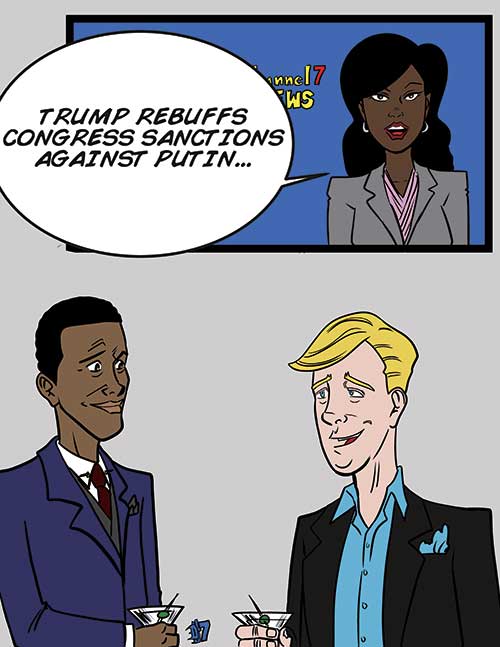
Many of those old enough to remember the Cold War are shocked by Donald Trump’s embrace of the Russians and Vladimir Putin. Once World War II was over, Russia under Joseph Stalin continued to retain control of Europe from East Germany onward. The goal was to establish the USSR as an alternative to the capitalistic democracies to the West.
In Stalin’s Union of Soviet Socialist Republics religion was oppressed in favor of the primacy of the state, which was run by a despotic premier. The tenets of the Bible were replaced by the works of Marx and Lenin. The private right to own property was displaced by the communist doctrine that all means of production belonged to the state.
Smaller countries of Eastern Europe lacked the military capacity to resist annexation into the USSR, but the U.S. maintained its authority over West Germany after World War II. The Russians built a wall between West and East Germany to prevent western ideas from crossing the dividing line and corrupting the indoctrination of communism.
The Russians established an effective secret service, the KGB, to spy on citizens thought to be enemies of the state, as well as foreign countries. The KGB was known to have little reluctance to execute enemies of the state in sophisticated ways that would not reveal the identity of the assassin.
In the early days of the conflict between communism and western capitalism and democracy, the U.S. behaved as though it was at war with the USSR, even though there was no direct battle line and no shots were fired. Some analysts have asserted that the Korean War and the Vietnam War were fought to restrain the spread of communism in Asia.
The House Un-American Activities Committee was established primarily to protect the U.S. against internal terrorism, but it went much farther than that. HUAC was behind Red Scare campaigns that branded journalists, scholars and filmmakers as treasonous, thus ruining their professional reputations.
Even though HUAC was abolished in 1975, profound opposition to Russian communism persisted, especially among conservatives. On March 8, 1983, President Reagan gave a memorable speech in which he branded Russia “an evil empire.” He cautioned the western world not to turn away “… from the struggle between right and wrong and good and evil.”
Then in 1987, Reagan visited Berlin and famously said “Mr. Gorbachev — tear down this wall.” Two years later Germans began dismantling the wall. And in 1990, Poland broke from Russian domination. Other countries in the USSR then began to break away. While the Cold War theoretically ended in 1990, the philosophical conflict between the Russian brand of communism and western capitalism still persists.
Clearly, Trump’s connection is not philosophical. He has already demonstrated a willingness to desecrate a major economic principle of the presidency, that the office will operate for the benefit of the republic and not to increase the president’s wealth. But given Reagan’s legacy, why have conservatives also abandoned that principle?
One wonders what else is for sale?






